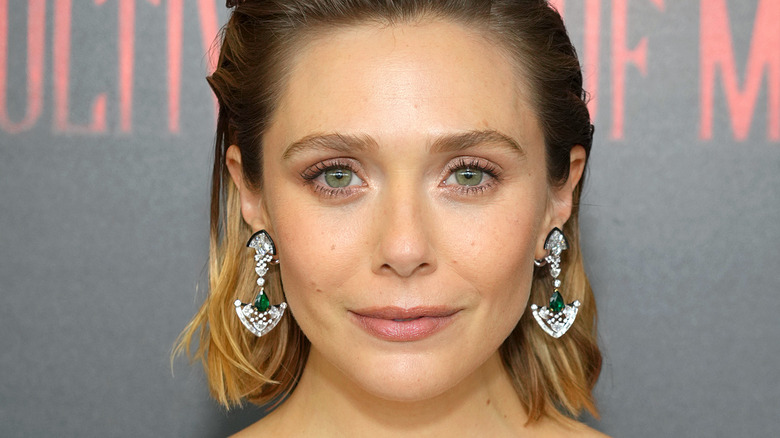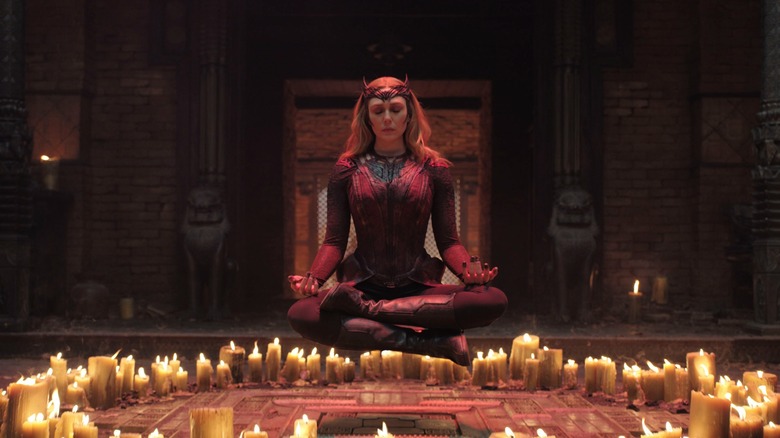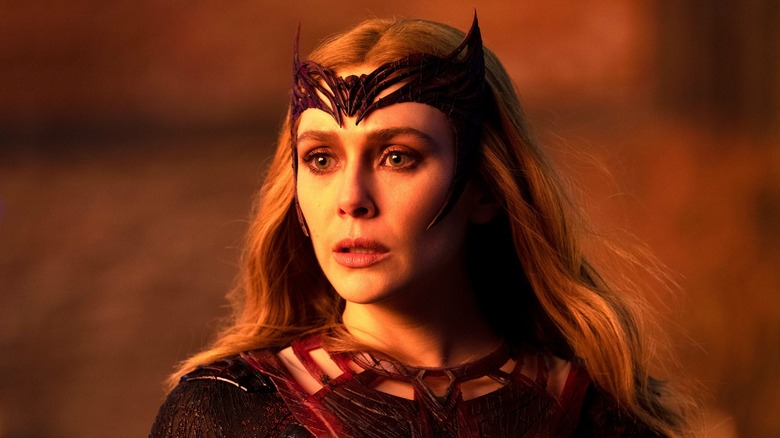Multiverse Of Madness Screenwriter Reveals Elizabeth Olsen's Reaction To Scarlet Witch's Violent Scene - Exclusive
Spoiler warning: This article includes major plot details from "Doctor Strange in the Multiverse of Madness."
Arguably one of the most dramatic character arcs in the history of the Marvel Cinematic Universe involves the plight of Wanda Maximoff (Elizabeth Olsen). Spurred by the death of Vision (Paul Bettany) in "Avengers: Infinity War," which was magnified by the events of "WandaVision," the trauma brought about by the love and loss of Vision and their children led to Wanda's transformation into the malevolent Scarlet Witch.
Following his introduction to the MCU as the showrunner for the hit Disney+ series "Loki," screenwriter Michael Waldron was saddled with the gargantuan task of writing Wanda-Scarlet's next chapter in "Doctor Strange in the Multiverse of Madness." New in theaters, the sequel to 2016's "Doctor Strange" finds a vengeful Wanda-Scarlet facing off against Dr. Stephen Strange (Benedict Cumberbatch) and Sorcerer Supreme Wong (Benedict Wong) as they try to protect a gifted teen, America Chavez (Xochitl Gomez). Since America has the unique ability to travel across universes, Wanda-Scarlet is hell-bent on extracting the young teen's immense powers to locate her lost sons. Worse yet, if the conjurer of dark magic obtains America's powers, she'll have the ability to tear the multiverse apart.
Before Wanda-Scarlet gets her chance to harness America's powers, she demonstrates the violent extremes she will use to get what she wants, and it involves a fan-favorite group of Marvel characters who meet a grisly fate.
Multiverse of Madness introduced the Illuminati
One of the key scenes in the "Doctor Strange" sequel involves the introduction of the Illuminati to the MCU; they put Dr. Strange on trial since they believe he's the greatest threat to the multiverse. The Illuminati is made up of alternate universe versions of Captain Carter (Hayley Atwell), Captain Marvel (Lashana Lynch), Baron Mordo (Chiwetel Ejiofor), Black Bolt (Anson Mount), Professor Charles Xavier (Patrick Stewart), and the Fantastic Four's Dr. Reed Richards (John Krasinski). In an exclusive interview with Looper, Michael Waldron couldn't believe that he not only got the members of the Illuminati he asked for, but also the actors who played them.
"We got the dream lineup. I can't believe it," Waldron enthused. "I would've been shocked if we got one of these characters that [we] ended up getting. I always thought that in the end, we'd have to use obscure nobody characters because there was no way we were going to actually get these guys, but we got [them]. It was a constant moving target of who's available and when, but the actors wanted to do it and made it work — and Marvel made it work — and it turned out to be a heck of a sequence."
Sadly, the Illuminati's reign is short-lived, and their violent end comes at the hands of Wanda-Scarlet.
Waldron says Olsen wanted her character's actions to make sense
Since Wanda-Scarlet dispatched each member of the Illuminati in a particularly violent manner, her actions were a huge departure from anything Elizabeth Olsen has experienced playing the character before. As such, Michael Waldron said Olsen's initial reaction to the script was curiosity because she wanted to get to the truth of her character's motivations.
"Like any great actor, she was curious and wanted to interrogate those actions from a character standpoint and make sure that she could inhabit Wanda in those moments in a way that made sense to her," Waldron recalled. "Lizzie ... always tries to be the lawyer for her characters. I felt it was my job, then, to give her the stacks and stacks of evidence for her to be the lawyer for Wanda in those moments as she does worse and worse things. So she was great. She was an amazing collaborator. She made the movie and the character better every step of the way."
Directed by Sam Raimi, "Doctor Strange in the Multiverse of Madness" is now in theaters.


